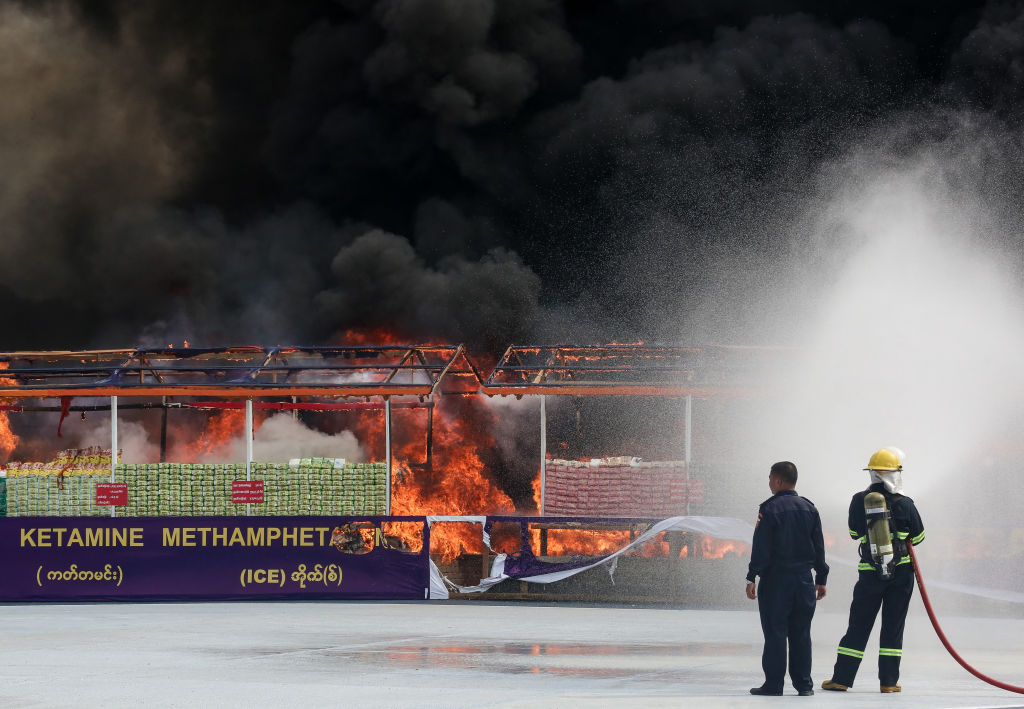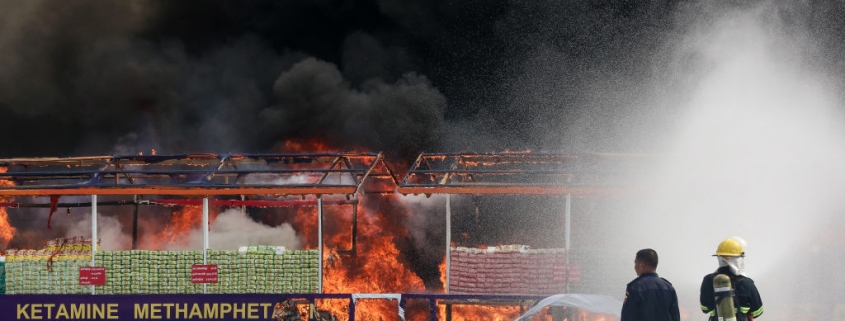Myanmar’s desperate condition: fragmentation, drugs, money-laundering and more
Myanmar was a key global site for criminal activity well before the 2021 military coup. Today, illicit industry, especially heroin and methamphetamine production, still defines much of the economy. Nowhere, not even the leafiest districts of Yangon or the grandest avenues of Naypyitaw, escapes the distorting effects of national-scale money laundering.
Then there are the imports and exports of weapons and people, to say nothing of the vast quantities of illegally mined jade, gold, and rubies.
The tumult of recent years—Covid-19, the coup and the insurrections that followed—helped supercharge inequality and desperation. The Taliban’s return to power in Afghanistan has also changed global drug markets.
Myanmar is again the world’s top producer of opium and heroin and continues to churn out enormous quantities of methamphetamine.
Myanmar’s military government, starved of revenue, with few friends internationally and with less territorial control than ever, is not motivated to stop the flows. Drugs are simply another way for Myanmar’s impoverished masses to keep the lights on.
Burmese women are also trafficked in large numbers to brothels, into forced marriages, and far away to lives of domestic servitude at risk of long-term harm.
Young men who escape conscription often do not do much better. Some find themselves in the region’s fishing ‘ghost fleets’, where anybody who causes trouble can disappear. Others end up doing the dirty and dangerous jobs that Thais, Singaporeans and Malaysians have long avoided.
In the borderlands across the mountains and valleys of eastern and northern Myanmar, criminal, political and military forces have, going back to the Vietnam War, built large militias that now run relatively autonomous micro-states.
In the west, the Arakan Army, a relative newcomer to this scene, is frequently accused of drug smuggling to Bangladesh, as well as war crimes.
Ethnic and religious minorities, such as the Rohingya, Kachin and Karen, and people from the most remote and downtrodden regions are particularly vulnerable.
In recent months, more attention has been paid to the development of ‘scam cities’ in Myanmar’s borderlands. Fuelled by small armies of entrapped workers, some held as slaves, these engines for exploitation and economic harm trick people in China, Malaysia, the Philippines or Africa to part with their hard-earned money.
Generations of leadership in both Beijing and Bangkok have accepted a certain level of cross-border criminal activity. At times, key interests have probably enriched themselves by taking a cut, looking away from the misery caused by illegal businesses and the destabilising effects of drug, people and weapons trades.
But China’s tolerance has limits. In February, a scam hub at Shwe Kokko, a town on the Myanmar-Thailand border, was raided and Chinese nationals were repatriated. The operation was a joint effort between officials from China, Myanmar and Thailand. China’s assistant minister of public security, Liu Zhongyi, even visited the region to oversee efforts. The generals in Naypyitaw have also authorised Chinese private military companies to operate in Myanmar for the first time.
Such interventions are justified by growing concern that Myanmar is at risk of wholesale fragmentation, which would exacerbate problems for its neighbours. They may think keeping Myanmar together under military rule to be preferable to its disintegration into feuding statelets, all eager for foreign support but without any economic basis, except for more crime, on which to sustain their rule.
While de-facto fragmentation is Myanmar’s new reality, any future official recognition of an independent Wa State, Kawthoolei or Kachinland would complicate efforts to manage the transnational effects of criminal activities.
So, Myanmar’s neighbours, especially China and Thailand, are looking very warily at the deterioration of security conditions in early 2025.
Rhetoric from Washington about eliminating global trades in cocaine and fentanyl could, in time, influence the perspectives of hard-line leaders in Myanmar’s immediate neighbourhood. In 2003, former Thai prime minister Thaksin Shinawatra launched a nationwide ‘war on drugs’, with a reported 2800 direct casualties as police and paramilitary forces settled scores with alleged criminals around the country. Today, his daughter is Thailand’s prime minister.
While many people in Myanmar dream of the end of military rule and the steady implementation of a democratic federal system, there is no serious appetite for global investments in required costly and drawn-out institution-building processes.
But what are the alternatives? Surrender Myanmar to vassal status under Chinese Communist Party oversight? Accept the perils of further impoverishment, criminalisation and despair? Or, finally, finding a way forward that invests in the shared ambition of tens of millions of Myanmar people to rebuild their shattered country?
That last path will be arduous, expensive and not without considerable risk. Still, the alternative is to condemn Myanmar’s people and their neighbours to new kinds of harm over the long term.



